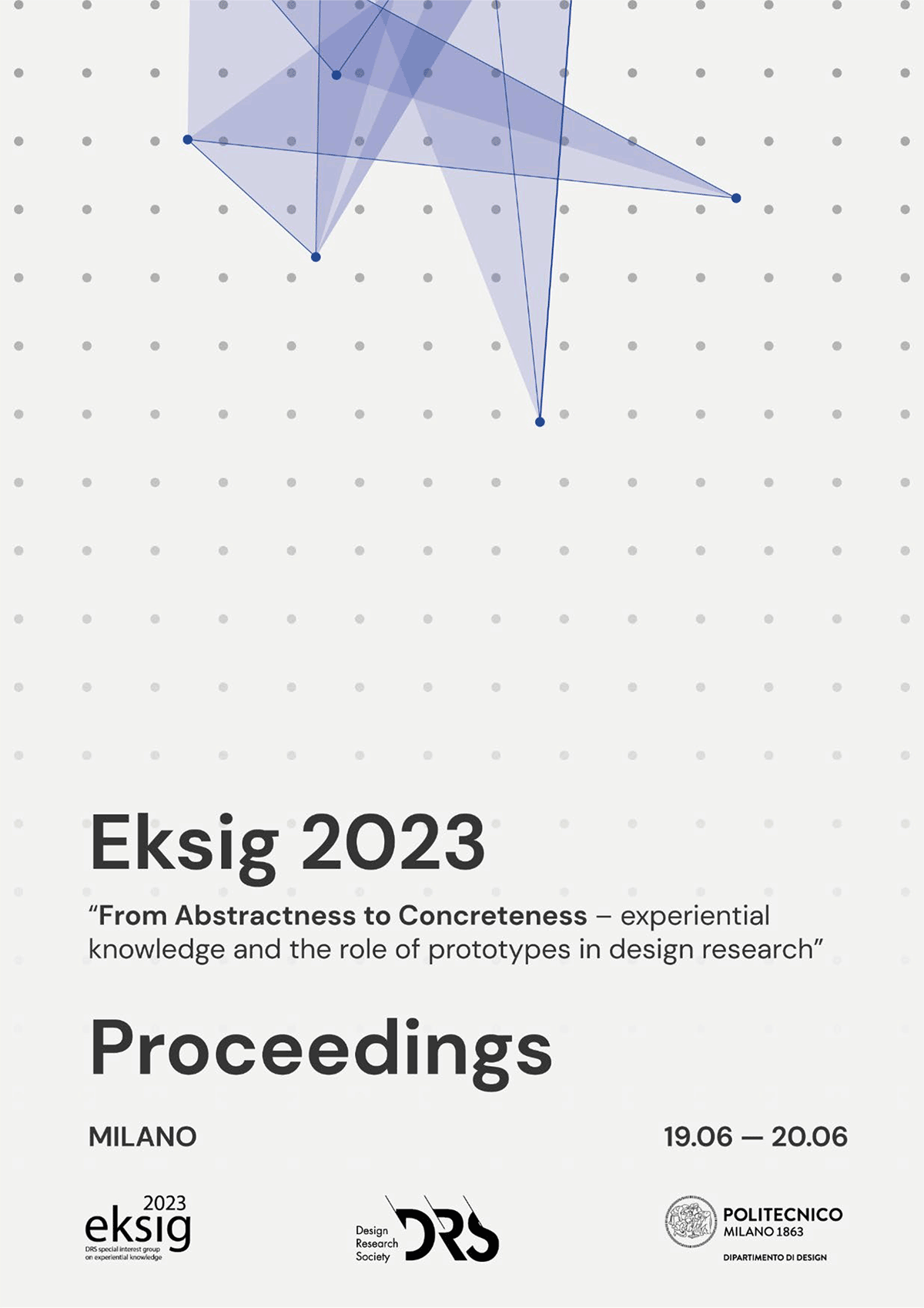From Abstractness to Concreteness - experiential knowledge and the role of prototypes in design research (EKSIG 2023)
Editors: Silvia Ferraris, Valentina Rognoli and Nithikul Nimkulrat
conference proceedings, 2023
Prototype and prototyping play a key role in experiential knowledge since they support the interconnections and collaboration among researchers and practitioners in many design fields. The role of prototypes in design research is characterised mainly by the general function of representing ideas and giving intelligible form to undetermined and abstract concepts pertaining to design solutions. Such a principle of transition from vagueness to clarity illustrates views on the role of prototypes which dot the diverse landscape of design research. Indeed, the evolution of design research in the past twenty years has led the path to a wide range of new possible prototypes applications.
Originally, in the industrial context, prototypes were made to test, evaluate, and improve the product until the final design and production phase. When design became an academic discipline, the scope of its enquiry expanded, embracing new areas of interest (i.e., sustainable design, materials design, participatory design, service design, user experience design, etc.), and their methodologies and scopes. During this evolution, the role that prototypes play in design research started to be questioned.
Indeed, nowadays, the role of the prototype encompasses several possibilities that link to the context and aim of the design research. When a general aim of the investigation is to develop a new design solution and make it real and available to users at the end of the process, prototypes support the transition from the idea to the final product. In this realm, prototypes play a crucial role, as they visualise, validate, experiment, and create such new solutions. Interestingly, prototypes for this kind of design research can be simple paper models that anticipate interactions up to complete working prototypes that are very close to the final product. In the digital field, provisional solutions are released on the market and updated afterwards. Prototypes, in this case, merge with the final products. New boundaries are broken between a final design and what is not.
Furthermore, the products that designers call to envision are becoming more and more complex. They are equipped with sensors, processors, and connected devices that support the interaction with digital interfaces, applications, and complex services. Hence, prototypes are meant to support design processes that rely on the supplementation of new kinds of expertise – such as user experience design, interaction design, material design and computer science – besides those traditionally integrated – such as product design, mechanical and electronic engineering). In this regard, the prototype embodies the translation of different design languages into a developing concept. Moreover, design research that explores and discusses possibilities might go beyond the development of concrete solutions and tackle significant issues (i.e., the impact of technology on society; climate change, social innovation) to reach new understating and develop new knowledge. This kind of design research usually occurs in academia and requires exploratory and speculative studies. Some of this design research is about tangible objects or is based on material experimentations. Typically, prototypes play an important role in the first explorative phases, in this realm since they enable the transition from abstract to concrete through immediate and factual experience. Designers research by envisioning solutions, imagining possible futures, exploring new fields, and feeding the design discourse with emerging contemporary issues and fictional scenarios.
Overall, the multifaceted landscape of today’s design research opens to a wide range of meanings that define what a prototype is and does. The discussion on prototypes’ identity is open. Instead of seeking to find an ultimate definition of prototype and its role in today’s design research, the conference aims at eliciting a conversation around the current and multiform panorama of experimentations around and with prototypes.
(download conference proceedings)
Suggested Citation: Ferraris, S., Rognoli, V., & Nimkulrat, N. (eds.) (2023). From Abstractness to Concreteness – experiential knowledge and the role of prototypes in design research. Proceedings of International Conference 2023 of the Design Research Society Special Interest Group on Experiential Knowledge (EKSIG 2023). Milan, Italy: Politecnico di Milano.
